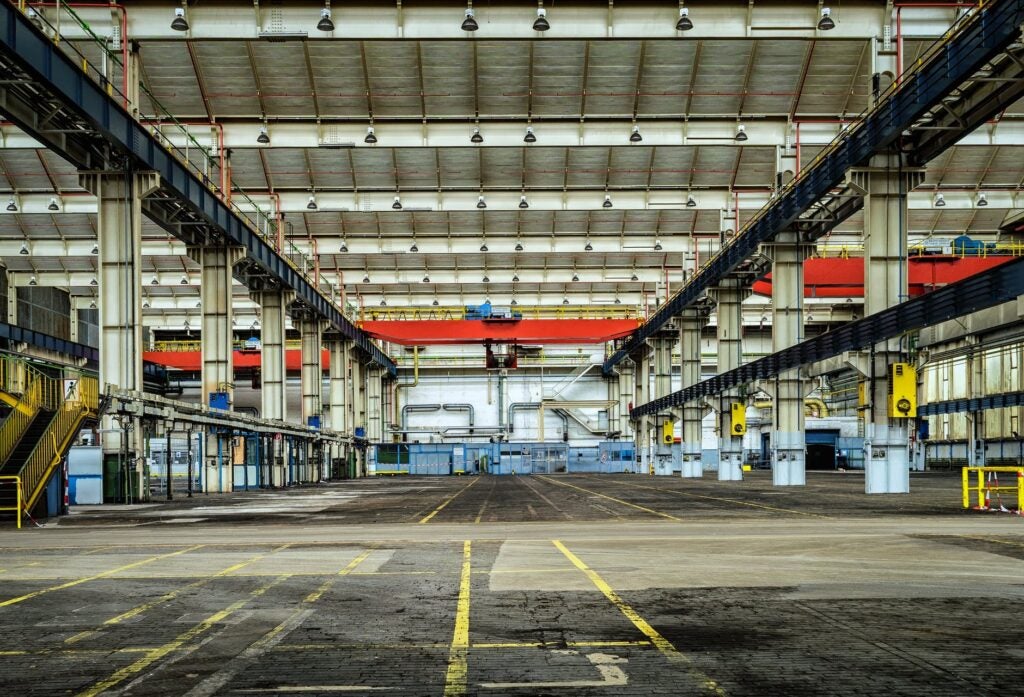Here’s How to Apply AI Across the Supply Chain for Better Service
By: Emily Newton

Artificial intelligence (AI) has proved itself a game-changer throughout numerous industries. Exciting possibilities in supply chain AI applications mean logistics professionals and warehouse teams can succeed in new ways and keep clients satisfied. Here are some compelling reasons to use intelligent supply chain software.
Augment Human Capabilities
Many people worry artificial intelligence will take jobs and leave formerly in-demand employees out of work. Although some level of reskilling often occurs, a common scenario is that AI helps people do their jobs better.
For supply chain professionals, that could mean it’s easier for them to source data from multiple places and use it to make more informed decisions. AI could analyze sales trends to determine which supplies a manufacturer should reorder now. Humans naturally learn things like selling patterns through experience. That knowledge is undoubtedly valuable. However, an AI tool could reach conclusions faster than people while working with larger amounts of data.
Jonathan Wright, IBM’s managing partner and global vice president for supply chain, discussed the perks of AI and machine learning (ML) during an interview with Chain Store Age.
He explained, “The biggest advantage of AI/ML is to bring out the best in our already pressured workforce. We can leverage this technology to inform, engage, and empower individuals. We can bring the virtual assistance from home into the workplace and have Watson [IBM’s AI platform] be able to analyze vast amounts of data from multiple sources in microseconds.
Wright continued, “With emerging technologies like AI, ML, and automation, companies can bring together the best skills, capabilities, and insights from the business and their IT sectors.” Artificial intelligence can complement other advanced technologies, particularly when company leaders apply them to overcome known workforce challenges.
Prepare for Unforeseen Events
Even the most seasoned supply chain professionals can’t predict the future with certainty. Catastrophes could also happen that take most people completely off guard due to their associated quickness and scope. The COVID-19 pandemic was a good example of such a situation.
Fortunately, supply chain AI solutions can help users pick up on things they may otherwise have missed. Professionals can then use that information to get equipped for what the future may hold.
Nishith Rastogi is the CEO of Locus, a company that brings robotics to warehouses. He gave some practical examples of why AI is critical for building stronger supply chains. “With recent back-to-back disruptions in the supply chain, such as the Suez Canal blockage and the current congestion in the Southern China ports, it’s important now more than ever to future-proof the supply chain to help build resilience during times of unexpected challenges,” he said.
Rastogi continued, “Coming back to the ripple effects and how interconnected the supply chain is, whenever there’s an impact in one leg of the supply chain, brands need to think as to what the impact will be three legs before.”
AI can fill in knowledge gaps to minimize disruptions. “So, for example, what should be the change in manufacturing levels for a glitch in distribution? This is what the companies don’t know right now. This leads to chokepoints in the middle, and you can’t exactly predict where those chokepoints would be. And this is where technology and AI can help companies do all of this analysis, and more, in real-time,” Rastogi said.
Improve Fleet Tracking Methods
Supply chain professionals no longer need to call drivers to receive status updates from them. Instead, they can deploy real-time telematics solutions that provide the relevant location information, as well as details about driver behavior, fuel consumption, distance traveled, total time on the road, and more. Some products even include map replay functions to show the precise routes drivers take. Then, it’s possible to see if employees accept unauthorized side jobs or waste time.
Applying AI to fleet management also enables bringing valuable predictive analytics into the equation. Imagine if a telematics program shows a driver behind schedule while traveling with urgent goods. Then, AI could show the expected effects of various rerouting options. If taking a different road to reach the destination would only save a predicted 8 minutes, it’s likely not worthwhile. But, if the AI anticipates saving 40 minutes, a route adjustment makes sense.
Some AI-powered fleet management tools function as chatbots. It lets users converse in more than 100 languages while assisting them with fuel monitoring, weather forecasting, and other critical needs. Supply chain professionals thinking about using AI for fleet management might offer a customer-facing chatbot, too. For example, a client could use the tool to get a parcel’s estimated arrival timeframe.
Raise Productivity Levels and Profits
Using supply chain AI tools can also bring substantial productivity gains. For example, they might analyze the workflow to identify gaps, slowdowns, and process improvements. AI can also pinpoint the sources of trouble, whether related to an overworked warehouse team or delays between assembly line steps.
Opportunities exist to automate manual processes with AI, too. In one recent example, FedEx deployed an AI robotics system at a New York facility to speed package handling. It works with various parcel types, including tubes and padded mailers. In this instance, workers previously sorted and processed the packages by hand. However, they can now engage in different tasks.
Another effective use of AI supply software is particularly relevant to supply chain professionals dealing with merchandise sold online and in physical stores. Paul Gaffney, the chief technology and supply chain officer at Kohl’s, recognized that it’s often useful to invest in new technology without a guaranteed payoff.
“What opened a bunch of doors for us was the willingness to say, ‘Okay, we’re willing to risk a certain amount of money in the belief in the algorithm, and even if it doesn’t work, that investment in learning was good enough. And it turned out that it paid off,” Gaffney said.
The company wanted insights about whether to source items from stores or warehouses when fulfilling orders. Team members eventually realized that leaving a product in a store location where it’d take longer to sell resulted in more markdowns. The AI minimized those price reductions and recommended when and where to place items on sale.
Start Exploring Smart Supply Chain Software
These examples show why it often makes good business sense to apply AI throughout the supply chain. There’s no universal path to success, but assessing how the tech could improve known weaknesses is an excellent starting point.
2722 Views













